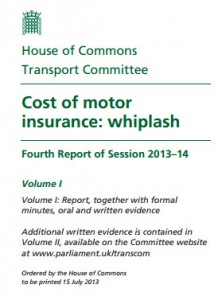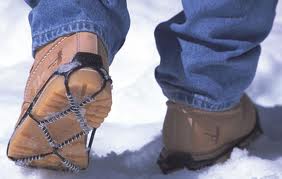We have recently looked at claims for injuries to drivers caused by vehicle slipping accidents in wintry conditions and now it’s time to look at claims by pedestrians in similar circumstances. Slips on premises - reasonable scope for a claim If you slipped on premises where the owner or occupier is responsible for keeping the property free from snow and ice, you may have a claim against them under the Occupiers’ Liability (Scotland) Act 1960. Slips while you are working - reasonable scope for a claim Slips due to snow and ice while at work may be covered by health and safety regulations, though you need to note the uncertainty arising from the changes brought about by the Enterprise and Regulatory Reform Act 2013. There may be reasonable prospects of a successful claim even if the accident did not occur on property belonging to your employer. Slips in the street - or "public liability" slips - poor chances of success The most common scenario, however, is where you have been out Continue Reading
Snow and Ice: Single Vehicle Accidents
We are back to that time of year when the roads in Moray and the North of Scotland are regularly icy or snow-covered. In this blog, we are looking at the chances of making a claim for personal injury where, due to the road conditions, you lose control of your vehicle on ice or snow and have an accident. The fact is these are very difficult claims to make successfully, if you were the driver of the vehicle. Difficulties for drivers in claiming successfully … As you will see from what follows, under Scots Law the relevant highway authority will virtually never be to blame for an accident caused by a vehicle skidding on ice or snow. This puts the onus very much on you as the driver to take great care when driving in such conditions – and even to think carefully about whether you should make your journey at all. … Though not for passengers If you are a passenger in a single vehicle accident of that type, you will almost certainly have a claim against the insurers of the driver Continue Reading
Helicopter Accident At Work Scenario Shows Up Inconsistencies In The Law
At the moment, we do not know the probable cause of the tragic helicopter accident in Glasgow on the evening of 29 November 2013, so the following discussion is hypothetical. It also concentrates exclusively on the application of the law to the occupants of a helicopter in similar circumstances (i.e. all persons “at work” at the time) and their relatives. In delivering an online update webinar to members of the Association of Personal Injury Lawyers (APIL) on 09 December 2013, APIL Chief Executive, Deborah Evans, has highlighted how one possible scenario for the accident could provide an example of the changes brought about by the Enterprise Act with effect from 01 October 2013. These changes affect employees’ ability to make claims for personal injury damages against their employers arising out of accidents at work and also the rights of employees’ families to claim compensation for the death of their relative in the course of their employment We have blogged about the effect of the Continue Reading
Whiplash Injuries: How They Happen
The subject of whiplash injuries continues to appear regularly in the news and in this post we're looking at the mechanism of the typical whiplash injury. The medical difficulty which exists in proving the existence and extent of these injuries means there’s always going to be doubters shouting (sarcastically) “Git ower it!” at people who claim compensation for whiplash. The Westminster Government say they are going after the “whiplash fraudsters” who invent or at least exaggerate their injuries following road traffic accidents. On the other hand, if you’ve ever suffered a whiplash injury yourself you will know what a miserable experience it can be, interfering with all areas of daily life. During Road Safety Week (18-24 November 2013), the Association of Personal Injury Lawyers (APIL) has been encouraging prevention of whiplash injuries by motorists avoiding the dangerous practice of tailgating the vehicle in front. The classic whiplash accident scenario The classic Continue Reading
Work Accidents: All Change, But Not For Public Sector Employees
A significant change in the law affecting personal injury claims for accidents at work becomes effective from 01 October 2013. A review of health and safety legislation over the last two years by the Westminster Government culminates in the enactment of section 69 of the Enterprise and Regulatory Reform Act 2013 (“the 2013 Act”), which is in force from 01 October. Background to the Enterprise and Regulatory Reform Act 2013 The Government considered that there was too much red tape for businesses trying to comply with their health and safety obligations and this resulted in unnecessary cost. The Government also took the view that the present law was unfair because employers’ liability insurers sometimes had to pay out on claims even though the employer they insured had done everything they could to safeguard their employees in the circumstances. There was, for example, such “strict liability” if an employee was injured due to a failure of a piece of work equipment even if it could Continue Reading
Road Accident Injury Claims: Details To Get From The Other Driver
You have been involved in a road traffic accident with another vehicle, which was not your fault. You have suffered injury as a result. You need to make a claim for your injuries and other losses. Motor insurance is compulsory and so the aim will be to make the claim against the insurers of the third party driver. What are the details you need to get from the other party involved in the accident? Aside from the situation where you are not able to get the information at the scene because you or the other driver is so seriously injured, it can be helpful if you can manage to get: (most important of all) the registration number of the other vehicle the make, model and colour of the other vehicle the name and address of the driver of the other vehicle the name and address of the insurers of the other vehicle the policy number or claims reference number for the other party and their insurers. If the police attend the scene of the Continue Reading
Whiplash Injury: UK Insurers Told By MPs To Sort Out Their Practices
MPs consider the effect of whiplash claims on motor insurance premiums The UK Parliament’s Cross-Party Transport Select Committee published its report “Cost of Motor Insurance: Whiplash” on 31 July 2013. The Westminster Government’s perception is that there is an increasing number of whiplash personal injury claims following road traffic accidents – some of which are invented by the supposed victims and, even where genuinely-based, the extent of the injury is often exaggerated. In the Government’s eyes, this is pushing up the cost of motor insurance. The Government has described the UK as “the whiplash capital of the world”. The Select Committee considered these issues as part of its remit. What is Whiplash and Why is it Problematic? The definition for whiplash used by the Committee was: “The neck pain which occurs after the soft tissue in the spine has been stretched and strained when the body is thrown in a sudden, forceful jerk.” This is a typical result of the Continue Reading
Work Slipping Accidents in Ice and Snow: Why Employers Must Carefully Assess Options to Reduce Risks
A recent Scottish court decision has potentially wide implications for you if you are an employer who requires your employees to work remotely in wintry conditions. It illustrates why it is important that employers keep up to date with advances in equipment technology which might make work safer, especially if the equipment is available relatively cheaply. Kennedy -v- Cordia (Services) - The Facts of the Case The injured person, Tracey Kennedy, was employed by Cordia Services as a home carer. One night in December 2010, together with a colleague, she had to visit a terminally-ill, housebound person in Crookston, Glasgow. At the time, Scotland was experiencing an extended period of wintry weather. There was snow and ice on the ground. As she walked down a path towards the house, she slipped and fell, breaking her wrist. She was wearing suede boots with a ridged sole. The boots were her own, not provided by her employer. The Legal Basis of the Claim The claim was based on Continue Reading
Bicycle and Motorcycle Accidents Reduction – Thanks to the Weather
Statistics published by the Department for Transport on 01 August 2013 reveal that the number of motorcycle and bicycle accidents on Great Britain’s roads has dropped since last year – something that can probably be attributed to the weather. The Quarterly Provisional Estimates record how many road accidents occur in the four quarters of each year. Experts can then analyse year-on-year trends, helping us to understand what effect the weather has on the safety of our roads. The most recent data makes for interesting reading because it shows the amount of motorcycle and bicycle accidents in the first quarter of 2013 (January to March) has decreased significantly from the same period in 2012. The number of pedal cycle casualties fell by 23% compared to the same period in 2012 while the number of motorcyclist casualties dropped by 27%. So what was the reason for the reduction in the number of accidents? The overall UK average temperature during the first three months of 2013 Continue Reading
Am I Likely To Lose My Job If I Claim For An Injury At Work?
The answer, in a word, is “no” – you are not likely to lose your job if you make a claim. If you have been injured in an accident in the course of your employment due to the fault of your employer, you might be worried that making a personal injury claim could lead to you getting the sack. Quite apart from the stresses and strains caused by your injury itself, the thought that you might lose your livelihood as well can be a strong off-putting factor in relation to making a compensation claim. Your concern might be either that your employment will be terminated as the direct result of making your claim or that the “atmosphere” it will create with your employers will be so bad that it will only be a matter of time before you will feel forced to resign because you will not be able to stand the pressure you are under. What is your employer’s duty to you? Employers have to take all reasonably practicable steps to ensure the safety of their employees at work. This includes Continue Reading
Golf Ball Injuries: A Fair Way To Treat Golf Clubs?
In Scotland, there are more than 550 golf courses and Moray has 9 of them. I’m a (sadly, very inactive) member of Moray Golf Club (Lossiemouth), which has two fantastic links courses. An appeal decision of the Court of Session from March 2013 has health and safety implications for golfers and golf clubs all over Scotland. The Facts of the Case The case of Phee –v- Gordon concerned an inexperienced golfer (Mr Phee) who sued Niddry Castle Golf Club in West Lothian and a member of the golf club (Mr Gordon) as the result Mr Phee losing his left eye after being struck by a golf ball from a wayward tee shot hit by Mr Gordon. Arguments that Mr Phee was partly to blame for his injury were rejected by the court. However, the appeal was successful in that Mr Gordon convinced the court that the blame which had been apportioned as 30% to the golf club and 70% to Mr Gordon following the initial hearing of evidence should be reversed – and more - on appeal. In other words, though the Continue Reading
Not Wearing A Seatbelt: How It Can Affect Your Personal Injury Claim
General issues about contributory negligence in PI cases In many personal injury claims, though it’s clear that the accident was the fault of someone else – which means the claim should succeed - there can be arguments about whether you as the injured person should share some of the blame for the accident. This is what is referred to as contributory negligence. It is often possible to counter arguments for contributory negligence, meaning that your claim succeeds in full. It is up to the other side to prove contributory negligence applies in the circumstances rather than being up to you to prove that you did take proper care for your own safety. If contributory negligence applies, your compensation will be reduced. In our experience, across the personal injury accident spectrum, reduction rates most often tend to be in the 10% to 25% range. In other words, for example, if contributory negligence is 25% then you lose one quarter of your damages. Why the level of Continue Reading








